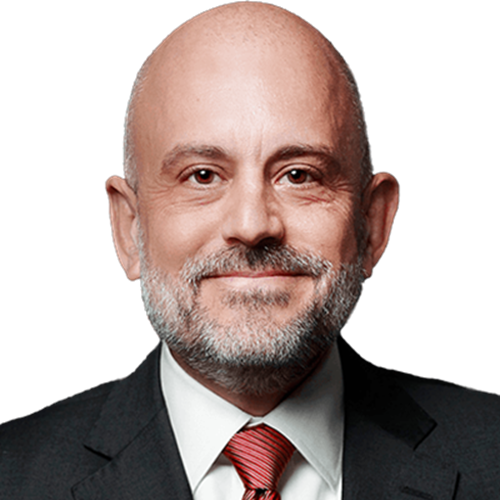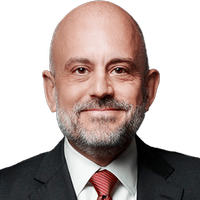To Succeed at Investing, Do What Yale Does
Yale’s endowment has delivered consistent income with minimal stock risk. Here’s a look at how they did it and what it could mean for you and your portfolio.

Profit and prosper with the best of Kiplinger's advice on investing, taxes, retirement, personal finance and much more. Delivered daily. Enter your email in the box and click Sign Me Up.
You are now subscribed
Your newsletter sign-up was successful
Want to add more newsletters?

Delivered daily
Kiplinger Today
Profit and prosper with the best of Kiplinger's advice on investing, taxes, retirement, personal finance and much more delivered daily. Smart money moves start here.

Sent five days a week
Kiplinger A Step Ahead
Get practical help to make better financial decisions in your everyday life, from spending to savings on top deals.

Delivered daily
Kiplinger Closing Bell
Get today's biggest financial and investing headlines delivered to your inbox every day the U.S. stock market is open.

Sent twice a week
Kiplinger Adviser Intel
Financial pros across the country share best practices and fresh tactics to preserve and grow your wealth.

Delivered weekly
Kiplinger Tax Tips
Trim your federal and state tax bills with practical tax-planning and tax-cutting strategies.

Sent twice a week
Kiplinger Retirement Tips
Your twice-a-week guide to planning and enjoying a financially secure and richly rewarding retirement

Sent bimonthly.
Kiplinger Adviser Angle
Insights for advisers, wealth managers and other financial professionals.

Sent twice a week
Kiplinger Investing Weekly
Your twice-a-week roundup of promising stocks, funds, companies and industries you should consider, ones you should avoid, and why.

Sent weekly for six weeks
Kiplinger Invest for Retirement
Your step-by-step six-part series on how to invest for retirement, from devising a successful strategy to exactly which investments to choose.
The wealthiest and most successful investors in the world keep getting wealthier, not because they are lucky or privileged, but because they are playing a different game than the average investor.
They do not rely on 401(k)s, average rates of return and stock market performance to find security for themselves. Their attitude about money is completely different. What they focus on is different, and how they invest their money is different, too.
While the average investor is often spinning their wheels, following the heard in their search for financial freedom and ultimately being discouraged with their results, the wealthy are reaching new levels of wealth and financial independence. Why is that?
From just $107.88 $24.99 for Kiplinger Personal Finance
Become a smarter, better informed investor. Subscribe from just $107.88 $24.99, plus get up to 4 Special Issues

Sign up for Kiplinger’s Free Newsletters
Profit and prosper with the best of expert advice on investing, taxes, retirement, personal finance and more - straight to your e-mail.
Profit and prosper with the best of expert advice - straight to your e-mail.
Where Average Investors Go Wrong
What I have found is that the average investor has been promised if they fund their retirement accounts, accelerate the payoff of their home and store money in the bank that security will follow — but this advice has proven over and over again to fall short of producing the results they were promised.
The reason is simple:
- Markets go up, and then the profits evaporate with the mention of a world conflict, a terrorist’s attack, a deadly virus or some other circumstance outside of our control, causing the pursuit of financial freedom to be delayed or lost.
- A commitment of resources to rapidly pay down debt becomes tunnel vision only to find along the way that the need for money never stops. Home repairs, college tuition, automobile purchases all compete for the same resources, putting pressure on retirement and future goals.
- And storing cash in the bank promises security by having easy access to cash but only proves to be a burden knowing nothing is being done to grow your money for the future.
Yet, this is how the majority of people handle their money, and it is leading them all to the same place … a place of frustration, disappointment and disillusion.
Market Extremes Intensify the Issues
The average investors following this approach time and time again find themselves relying on and hoping for things outside of their control to bring them happiness, success and financial freedom.
This is most evident when there are extremes happening in the market that are either good or bad. When markets are good, greed sets in and there is euphoria, optimism and hope. It spurs a belief and eagerness that more growth is coming that is entirely based on things and events outside of investors’ control. It’s equivalent to a gambler’s rush. When markets are bad, fear sets in and there is anxiety, pessimism and hopelessness. It spurs a belief that more losses are coming and leaves investors with a sense of uncertainty about what will happen next.
All of it is based entirely on things and events outside of their control. This is what I call a spectator approach to money, which means that you are just watching to see what happens next and are simply along for the ride with no control over the outcome.
Instead, Look at What Yale’s Doing
There is a better approach. All you have to do is turn to those who are already getting the results you are looking for and then duplicate what they are doing successfully. For example, we can look to Yale’s endowment (http://investments.yale.edu/) for a glimpse into what one of the world’s top investors does to grow wealth.
Their website states how their approach to money management is different and why they chose to go against the status quo of “traditional” investing:
“Over the past 30 years, Yale dramatically reduced the Endowment's dependence on domestic marketable securities by reallocating assets to nontraditional asset classes.”
“The heavy allocation to non-traditional asset classes stems from their return potential and diversifying power.”
With billions under management, Yale’s goal is to consistently produce income that is used to fund 34% of their school’s operations, relieving them from solely having to rely on tuition to pay for staff, etc. They use proven strategies to generate consistent streams of income with a focus on avoiding losses … all with only 17% in the stock market.
A Revealing Breakdown of Yale’s Holdings
A quick look into Yale’s allocation shows how radically different their approach to investing is compared with the average 401(k) investor. While the average investor allocates nearly 100% of their assets and contributions to domestic and foreign equity mutual funds, Yale takes a much different approach as you can see with their published asset allocation targets for their fiscal 2020:
Absolute return 23%
Venture capital 21.5%
Leveraged buyouts 16.5%
Foreign equity 13.75%
Real estate 10%
Bonds and cash 7%
Natural resources 5.5%
Domestic equity 2.75%
The average investor is unlikely to have direct access to the same opportunities that a multibillion-dollar endowment has, but there are alternative investment opportunities outside of stock and bond mutual funds and ETFs that can be used to mirror Yale’s approach, including such options as real estate, private equity and hedge funds, natural resources and managed futures. It is just a matter of finding a financial adviser who knows and understands how these programs work and has access to these types of opportunities. See “What are Alternative Investments or Portfolio Diversifying Investments (PDIs).”
The Bottom Line: Income Is King
Now you may be asking why you would compare yourself to a multibillion-dollar endowment? The answer is simple. Their goal is similar to what most investors are trying to accomplish, and that is to create consistent streams of income.
And to do that, these investors are not leaving their goal for consistent income to chance by relying on markets in their search for yield.
The No. 1 thing large investors like Yale realize that the average investor doesn’t seem to be thinking about is that financial freedom, security and success are not determined solely on how much money you have … rather it is a measurement of how much income is generated from the assets they have.
There is a difference, and the key to understanding this is being clear on why investors invest in the first place. Yale focuses on having income generated from assets to fund their operations.
Your financial freedom is contingent on having your investments generate income to support your lifestyle. That is the key difference between how most successful investors think, versus how the average person thinks.
The entire idea around saving and investing money is based on one thing, and that one thing is generating consistent income.
Securities offered through Kalos Capital, Inc., Member FINRA/SIPC/MSRB and investment advisory services offered through Kalos Management, Inc., an SEC registered Investment Advisor, both located at 11525 Park Wood Circle, Alpharetta, GA 30005. Kalos Capital, Inc. and Kalos Management, Inc. do not provide tax or legal advice. Skrobonja Financial Group, LLC and Skrobonja Insurance Services, LLC are not an affiliate or subsidiary of Kalos Capital, Inc. or Kalos Management, Inc.
Alternative Investment Funds represent speculative investments and involve a high degree of risk. An investor could lose all or a substantial portion of his/her investment. Investors must have the financial ability, sophistication/experience and willingness to bear the risks of an investment in an Alternative Investment Fund. Any investment in Alternative Investment Funds should be discretionary capital set aside strictly for speculative purposes. Alternative Investment Fund offering documents are not reviewed or approved by federal or state regulators. Some Alternative Investment Funds may have little or no operating history or performance and may use hypothetical or pro forma performance which may not reflect actual trading done by the manager or advisor and should be reviewed carefully. Investors should not place undue reliance on hypothetical or pro forma performance.
Securities offered only by duly registered individuals through Madison Avenue Securities, LLC. (MAS), Member FINRA & SIPC. Advisory services offered only by duly registered individuals through AE Wealth Management (“AEWM”), a registered investment adviser. Skrobonja Financial Group, LLC, Skrobonja Insurance Services, LLC, AEWM and MAS are not affiliated entities. The article and opinions in this publication are for general information only and are not intended to provide specific advice or recommendations for any individual. We suggest that you consult your accountant, tax or legal adviser with regard to your individual situation.
Profit and prosper with the best of Kiplinger's advice on investing, taxes, retirement, personal finance and much more. Delivered daily. Enter your email in the box and click Sign Me Up.

Brian Skrobonja is a Chartered Financial Consultant (ChFC®) and Certified Private Wealth Advisor (CPWA®), as well as an author, blogger, podcaster and speaker. He is the founder and president of a St. Louis, Mo.-based wealth management firm. His goal is to help his audience discover the root of their beliefs about money and challenge them to think differently to reach their goals. Brian is the author of three books, and his Common Sense podcast was named one of the Top 10 podcasts by Forbes. In 2017, 2019, 2020, 2021 and 2022, Brian was awarded Best Wealth Manager. In 2021, he received Best in Business and the Future 50 in 2018 from St. Louis Small Business.
-
 Nasdaq Leads a Rocky Risk-On Rally: Stock Market Today
Nasdaq Leads a Rocky Risk-On Rally: Stock Market TodayAnother worrying bout of late-session weakness couldn't take down the main equity indexes on Wednesday.
-
 Quiz: Do You Know How to Avoid the "Medigap Trap?"
Quiz: Do You Know How to Avoid the "Medigap Trap?"Quiz Test your basic knowledge of the "Medigap Trap" in our quick quiz.
-
 5 Top Tax-Efficient Mutual Funds for Smarter Investing
5 Top Tax-Efficient Mutual Funds for Smarter InvestingMutual funds are many things, but "tax-friendly" usually isn't one of them. These are the exceptions.
-
 Social Security Break-Even Math Is Helpful, But Don't Let It Dictate When You'll File
Social Security Break-Even Math Is Helpful, But Don't Let It Dictate When You'll FileYour Social Security break-even age tells you how long you'd need to live for delaying to pay off, but shouldn't be the sole basis for deciding when to claim.
-
 I'm an Opportunity Zone Pro: This Is How to Deliver Roth-Like Tax-Free Growth (Without Contribution Limits)
I'm an Opportunity Zone Pro: This Is How to Deliver Roth-Like Tax-Free Growth (Without Contribution Limits)Investors who combine Roth IRAs, the gold standard of tax-free savings, with qualified opportunity funds could enjoy decades of tax-free growth.
-
 One of the Most Powerful Wealth-Building Moves a Woman Can Make: A Midcareer Pivot
One of the Most Powerful Wealth-Building Moves a Woman Can Make: A Midcareer PivotIf it feels like you can't sustain what you're doing for the next 20 years, it's time for an honest look at what's draining you and what energizes you.
-
 I'm a Wealth Adviser Obsessed With Mahjong: Here Are 8 Ways It Can Teach Us How to Manage Our Money
I'm a Wealth Adviser Obsessed With Mahjong: Here Are 8 Ways It Can Teach Us How to Manage Our MoneyThis increasingly popular Chinese game can teach us not only how to help manage our money but also how important it is to connect with other people.
-
 Looking for a Financial Book That Won't Put Your Young Adult to Sleep? This One Makes 'Cents'
Looking for a Financial Book That Won't Put Your Young Adult to Sleep? This One Makes 'Cents'"Wealth Your Way" by Cosmo DeStefano offers a highly accessible guide for young adults and their parents on building wealth through simple, consistent habits.
-
 Global Uncertainty Has Investors Running Scared: This Is How Advisers Can Reassure Them
Global Uncertainty Has Investors Running Scared: This Is How Advisers Can Reassure ThemHow can advisers reassure clients nervous about their plans in an increasingly complex and rapidly changing world? This conversational framework provides the key.
-
 I'm a Real Estate Investing Pro: This Is How to Use 1031 Exchanges to Scale Up Your Real Estate Empire
I'm a Real Estate Investing Pro: This Is How to Use 1031 Exchanges to Scale Up Your Real Estate EmpireSmall rental properties can be excellent investments, but you can use 1031 exchanges to transition to commercial real estate for bigger wealth-building.
-
 Should You Jump on the Roth Conversion Bandwagon? A Financial Adviser Weighs In
Should You Jump on the Roth Conversion Bandwagon? A Financial Adviser Weighs InRoth conversions are all the rage, but what works well for one household can cause financial strain for another. This is what you should consider before moving ahead.
